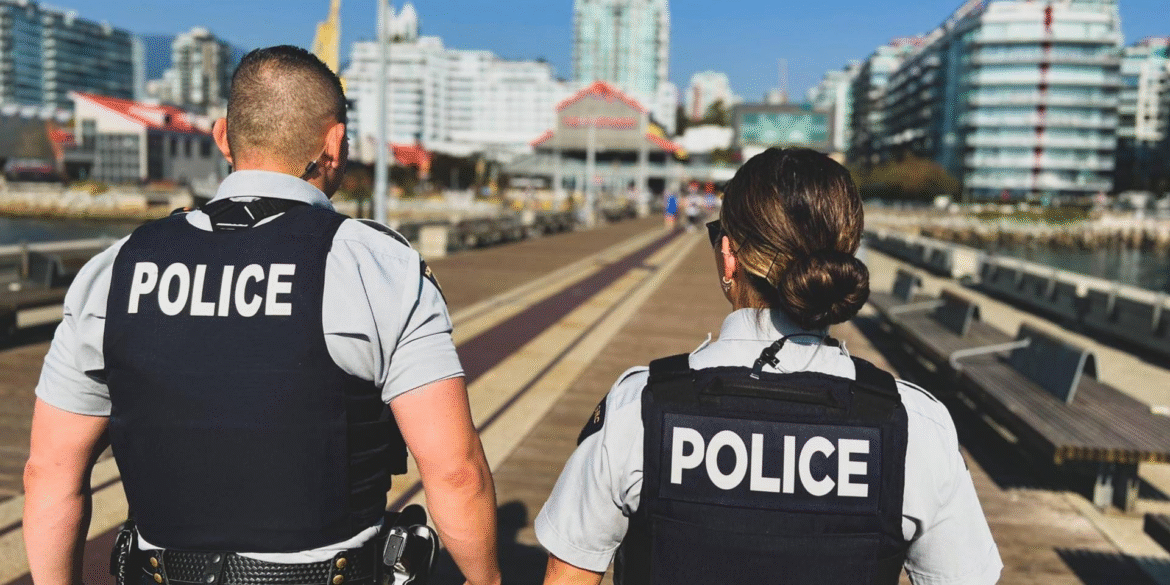AI Generated Summary
- ” In a public statement, he urged the federal government to elevate extortion to a terrorism-level crime, arguing that threats against officers of the court amount to an attack on the justice system itself.
- A rapidly expanding extortion crisis in British Columbia has now reached the province’s legal fraternity, prompting lawyers and public officials to demand tougher federal action—including calls to classify extortion as a terrorism offence.
- Both victims and alleged perpetrators are predominantly of Punjabi origin, with police linking several incidents to organised crime groups rooted in Punjab and Haryana, including the Bishnoi gang, now designated a terrorist organisation in Canada.
A rapidly expanding extortion crisis in British Columbia has now reached the province’s legal fraternity, prompting lawyers and public officials to demand tougher federal action—including calls to classify extortion as a terrorism offence.
What began as a wave of threats against business owners and homeowners has taken a troubling turn, with legal professionals becoming the latest targets. On November 14, the Law Society of British Columbia issued an urgent alert, warning members of threatening phone calls and messages demanding large sums of money, often accompanied by explicit threats to personal safety.
Conservative MLA Steve Kooner, himself a practising lawyer and a prominent Punjabi-origin legislator, condemned the development as a “disturbing escalation.” In a public statement, he urged the federal government to elevate extortion to a terrorism-level crime, arguing that threats against officers of the court amount to an attack on the justice system itself.
A Crisis Engulfing B.C.’s South Asian Community
The crisis—fuelled largely through encrypted platforms such as Instagram—has disproportionately struck British Columbia’s sizeable Punjabi diaspora. Both victims and alleged perpetrators are predominantly of Punjabi origin, with police linking several incidents to organised crime groups rooted in Punjab and Haryana, including the Bishnoi gang, now designated a terrorist organisation in Canada.
What began surfacing in late 2023 has now exploded. By November 2025, more than 100 extortion cases were reported province-wide, with Metro Vancouver and the Fraser Valley hit hardest. Surrey RCMP alone logged 95 extortion reports and 45 related shootings this year, while Abbotsford reported 40 cases, including a spike of shootings in September.
The violent pattern is chillingly similar: anonymous social media messages demanding payments in cryptocurrency, followed by arson attempts, drive-by shootings, or property destruction when victims refuse.
High-Profile Targets, Deepening Fear
The issue gained national attention after the July 2023 shooting at the Vancouver-area home of Punjabi singer AP Dhillon, linked to threats from the Bishnoi network. Since then, several South Asian community leaders and business owners—especially in Surrey and Abbotsford—have faced repeated attacks.
Among them:
- Satish Kumar, Surrey temple president, whose home was shot at three times this year amid threats to his businesses.
- Kap’s Cafe in Surrey, owned by comedian Kapil Sharma, was attacked twice—most recently on August 7.
- Arshdeep Singh Arora, an Abbotsford businessman, survived a gasoline-fuelled arson attempt in August, followed by a chilling online death threat: “See what we did to you? Now … we will kill you.”
The intimidation has created a climate of fear, particularly among immigrant entrepreneurs in trucking, hospitality, construction, and real estate—sectors heavily populated by Punjabi-origin business owners.
Law Enforcement Responds, but Challenges Persist
RCMP spokesperson Vanessa Munn confirmed police were aware of the threats targeting lawyers but declined to detail active investigations. Officers continue to urge victims not to succumb to demands and to report all threats.
In September 2025, the province launched the BC Extortion Task Force, a 40-member multi-agency unit involving federal, provincial, and municipal law enforcement bodies. Supported by $100 million in annual provincial funding and $11 million from Ottawa for 2025–26, the task force aims to centralise investigations into organised extortion networks.
The Canada Border Services Agency also deported three foreign nationals on November 7—its first removals tied to the extortion crackdown.
Concerns of Foreign Interference
Adding another layer of complexity, RCMP Commissioner Mike Duheme revealed in October evidence of Indian government-linked operatives orchestrating both extortion and violent acts on Canadian soil. While details remain scarce, the revelation has heightened community anxieties and raised diplomatic sensitivities.
Community Calls for Action Intensify
Punjabi community leaders have organised town halls, media campaigns, and Crime Stoppers outreach to encourage anonymous reporting. A federal campaign launched in June carried messages in both English and Punjabi to help break the silence around extortion.
Yet, despite heightened policing and public pleas, the intimidation continues unabated—now reaching institutions once considered beyond the reach of criminal networks.
As B.C.’s legal community joins business owners, religious leaders, and ordinary residents in facing this growing menace, pressure is mounting on Ottawa to respond with stronger laws and a national strategy.
For many in British Columbia’s Punjabi community, the demand is simple: safety, accountability, and an end to a crisis that is shaking the province’s social and economic foundations.




